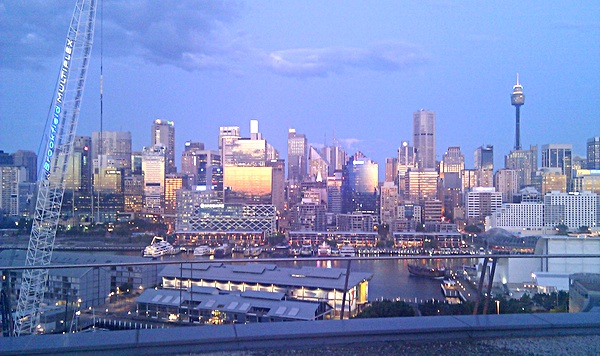Tomorrow’s Patch Monday podcast will be about data retention for law enforcement. Specifically, internet service providers (ISPs) retaining the metadata of all your online communications, possibly for years. I’d like your comments.
Here in Australia, it was revealed in June that the Attorney-General’s Department (AGD) had been discussing these issues in secret with ISPs, law enforcement and other government agencies. I covered that in Patch Monday in July, Is Australia’s data retention idea that scary?
Since the AGD activities were revealed, and following the Google Wi-Fi sniffing incident, the Senate Standing Committee on Environment, Communications and the Arts has been running an inquiry into The adequacy of protections for the privacy of Australians online.
On Friday the committee heard evidence, and late in the afternoon the discussions turned to ISP data retention. Delimiter has published a summary, and a story explaining that the Privacy Commissioner won’t talk about those AGD discussions. ZDNet.com.au stories say the Privacy Commissioner is against the idea although Neil Gaughan, Assistant Commissioner of the Australian Federal Police reckon it’s really just the status quo translated to the new medium.
Here’s a recording of Friday’s Senate hearing, starting from when the AGD’s Catherine Smith introduced the topic. She’s Assistant Secretary, in charge of the Telecommunications and Surveillance Law Branch.
Podcast: Play in new window | Download (Duration: 49:46 — 22.8MB)
This was recorded off the internet, so there are some gaps where the audio stream re-buffered. I have cleaned up the sound but it’s otherwise unedited. I’m compiling a 10- or 15-minute summary for Patch Monday. This is really only for the political tragics — or those who simply can’t wait to hear the persistent questioning by Greens Senator Scott Ludlam.
If you’d like to provide an audio comment on this issue for Patch Monday, Skype to stilgherrian or phone Sydney +61 2 8011 3733 and leave a voicemail. The deadline is 8.30am Monday morning, Sydney time. The podcast is now online, but you cal still leave an audio comment for next week’s episode.
[Photo: SATA beehive data storage, adapted from an original photograph by Konstantinos Koukopoulos, used under a Creative Commons Attribution license. Audio: Many thanks to journalist Josh Taylor for providing the audio recording.]






